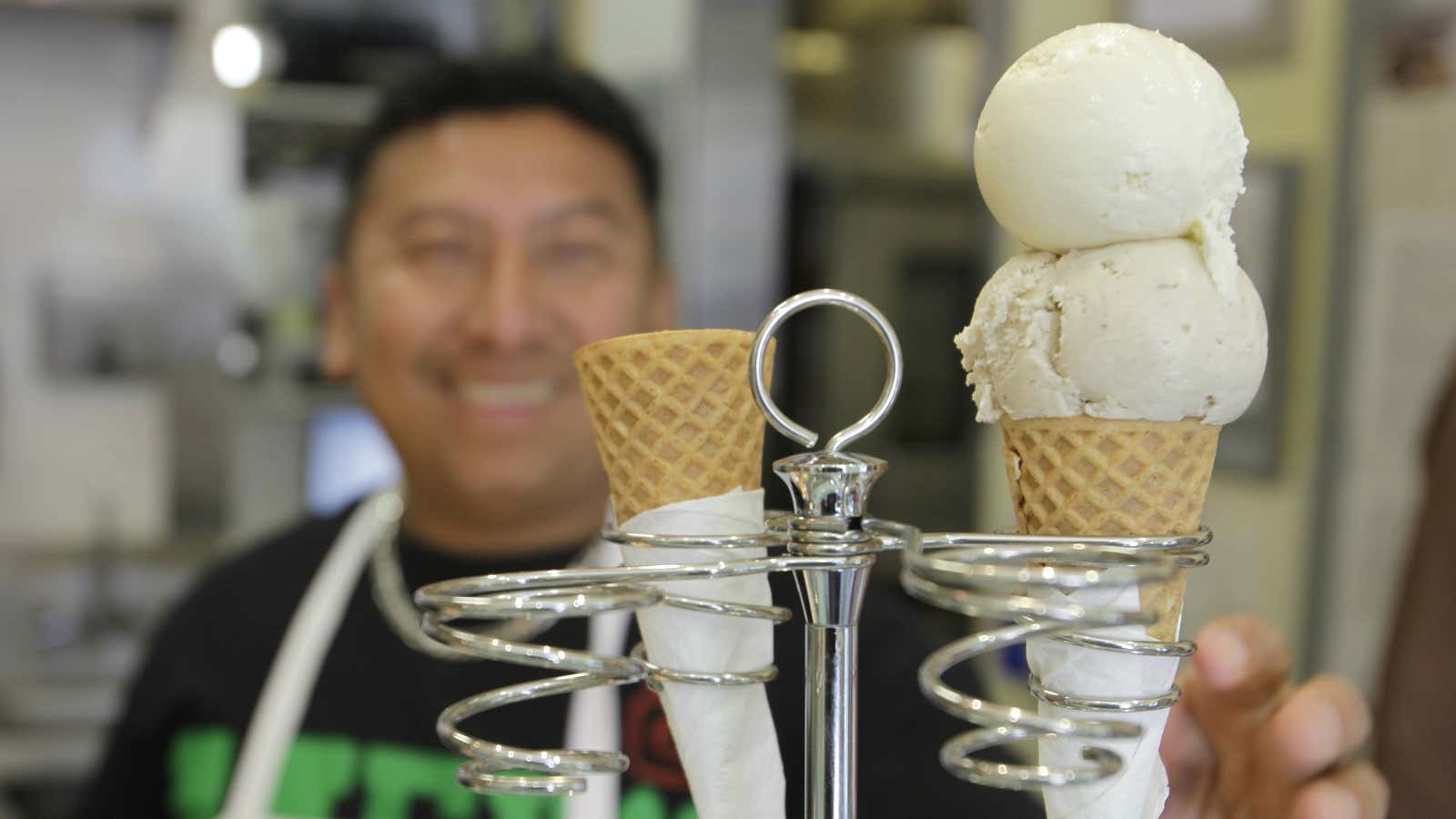As a huge tropical storm drifted westward across the Indian Ocean in March, it set itself on a collision course with the world’s sweet tooth.
Cyclone Enawo wreaked havoc on Madagascar, inflicting enough damage on the world’s biggest vanilla producer to roil the global vanilla trade and send prices to a record high of more than $600 per kilogram. And as farmers on the ground have worked to recover in subsequent months, those prices have trickled down to consumers in places thousands of miles away from the island nation.
The vast majority of vanilla-flavored products on the market use artificial flavoring, such as synthetic Vanillin. But for companies looking to capitalize on consumer interest in foods made without artificial ingredients, maintaining a steady supply of all-natural vanilla is taking a toll.
In Boston, an ice cream shop owner told the Boston Globe that vacuum-packed bags of vanilla beans used to cost $72 per pound. Shortly after the storm, the price increased 344% to $320 per pound. And in London, the upscale Oddono’s gelato chain had to remove its vanilla ice cream off the menu altogether because of high prices, according to the Financial Times (paywall).
The impact of Cyclone Enawo was a global reminder of just how disruptive to supply chains a weather event can be if it strikes an important agricultural area. Madagascan farmers produce much more vanilla than farmers in any other region of the world.
Prior to the storm, global vanilla traders such as Eurovanille expected the Madagascan harvest to be 30% larger than in 2016. That estimate was cut in half by the cyclone. Following the storm, the company reported that farmers felt pressured to harvest some of this year’s vanilla crop even before it could fully ripen, out of fear that their plants would be stolen. Since the storm, theft of plants increased, despite a greater police presence.
Those kinds of disruptions and high prices matter a lot to the global firms that sell flavorings to food companies, including German-based Symrise. When asked by an investor on Aug. 9 about the price of vanilla, Symrise CEO Heinz-Jurgen Bertam replied: “So vanilla prices, I don’t think they can go any higher than as what we are at the present.”
At present, no other non-artificial source can totally replace Madagascan vanilla, so prices are expected to remain high unless demand and consumption drop, an unlikely possibility. Until then, food companies will be left to grapple with how to best to weather the market storm.
